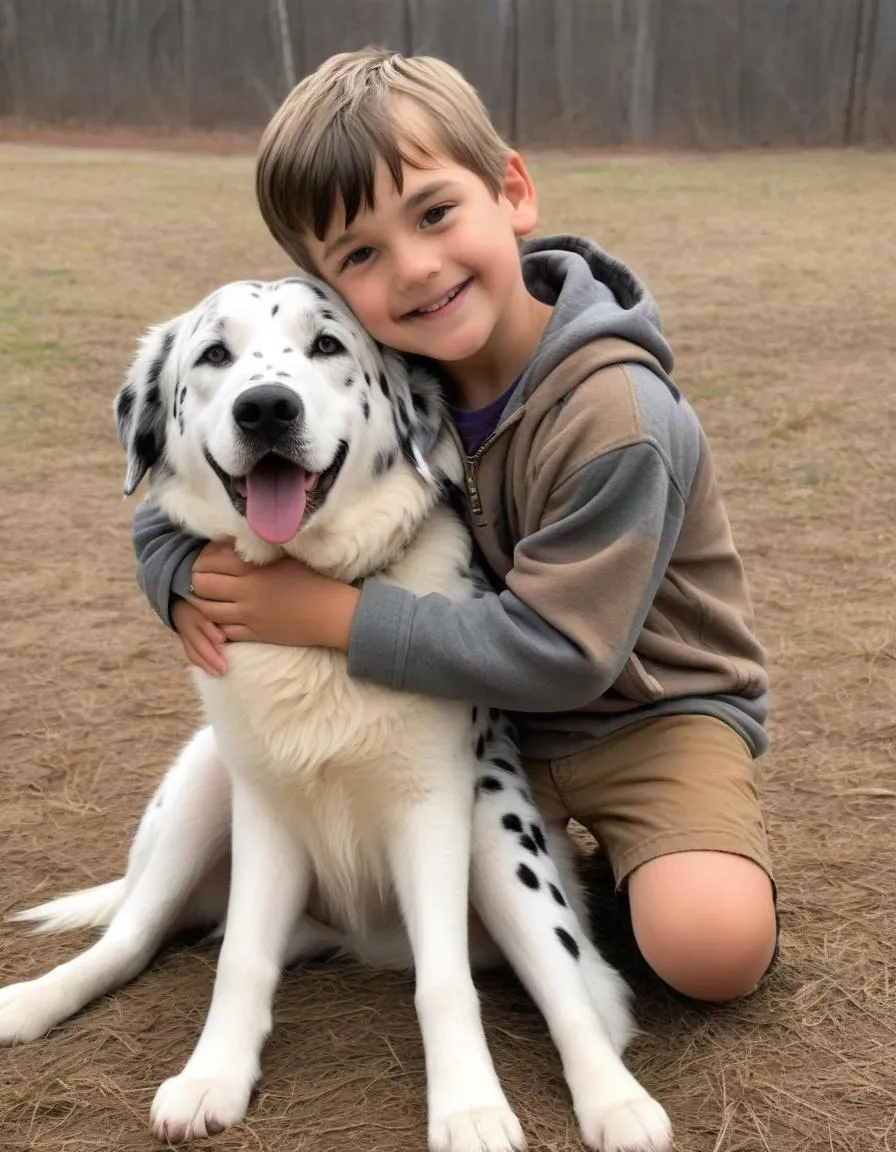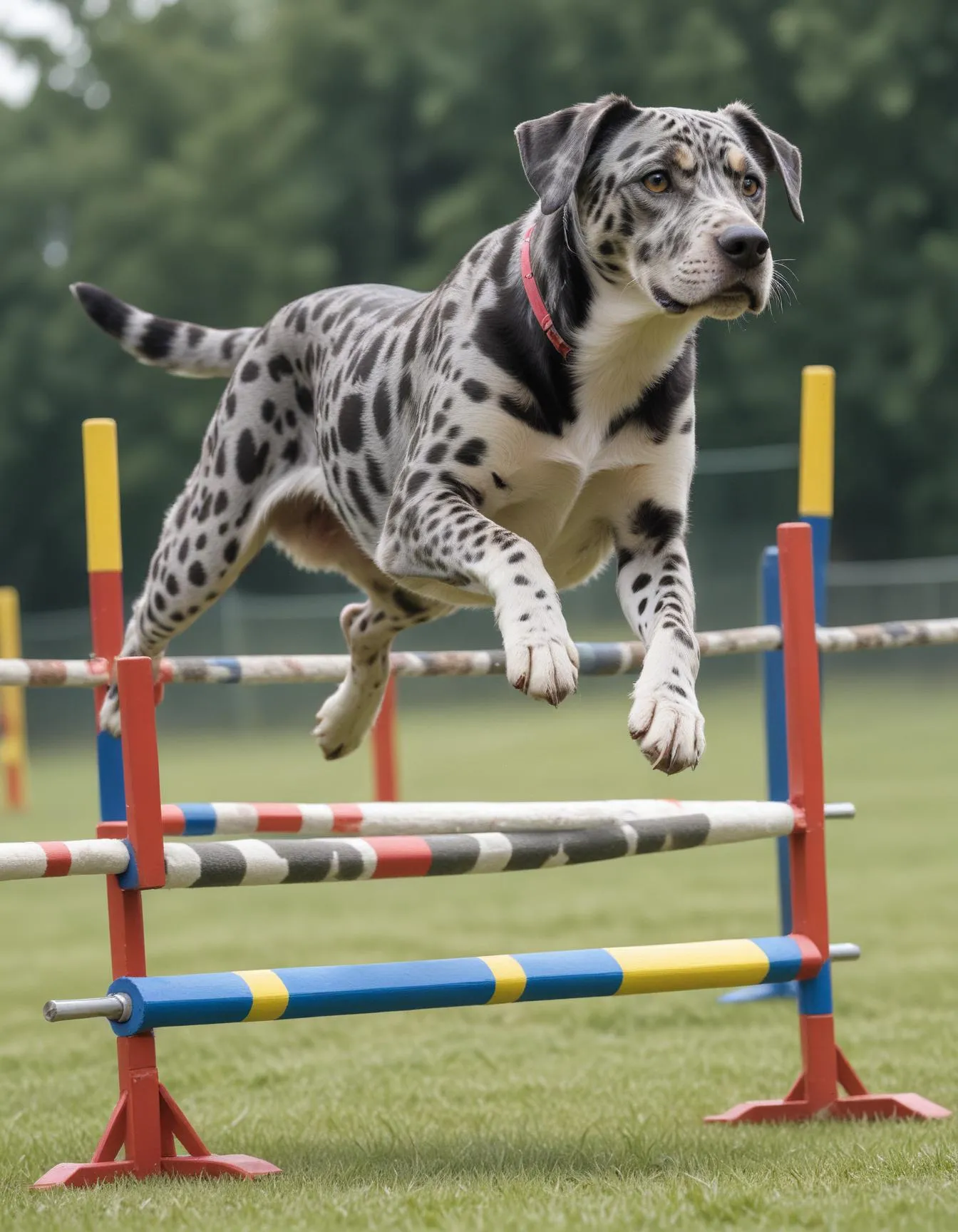Are Catahoula dogs really dangerous? This question has sparked numerous debates among dog enthusiasts and potential owners alike. Known for their striking appearance and unique temperament, Catahoula dogs have gained a reputation for being strong-willed and protective. But is this reputation justified or merely a misconception? In this article, we unveil the truth about Catahoula dogs and explore whether they are genuinely dangerous.
Contrary to popular belief, Catahoula dogs are not inherently aggressive. Their temperament is influenced by various factors, including socialization, training, and genetics. While it’s true that they possess natural protective instincts, they can be loyal and affectionate companions when properly raised and trained.
It is essential to understand that any dog, regardless of breed, can exhibit aggressive behavior if not properly cared for or exposed to negative experiences. To determine whether Catahoula dogs are dangerous, it is crucial to consider their individual personalities, upbringing, and training.
Join us as we delve into the truth behind Catahoula dogs and debunk common misconceptions about their temperament. Discover the real nature of these beautiful creatures and whether they make suitable pets for your family in the following sections.
Table of Contents
Common misconceptions about Catahoula dogs
One of the most prevalent misconceptions about Catahoula dogs is that they are inherently wild and dangerous. This belief often stems from their imposing appearance, with their muscular build and striking spotted coat patterns. However, this assumption is far from the truth. Catahoula dogs, like any other breed, are individuals, and their temperament is heavily influenced by factors such as genetics, socialization, and training.
Another common misconception is that Catahoula dogs are unsuitable for families with children. While it is true that Catahoula dogs can be protective and territorial, they can also be gentle and affectionate when properly socialized and trained. With responsible ownership and appropriate interaction, Catahoula dogs can make excellent family companions, providing loyalty, companionship, and a sense of security to their human pack.

Additionally, some people believe that Catahoula dogs are difficult to train or uncontrollable. This is another misconception that can be addressed through proper training and socialization. Catahoula dogs are intelligent and responsive to positive reinforcement training methods, making them highly trainable when their owners are willing to put in the time and effort required.
Understanding the temperament of Catahoula dogs
Catahoula dogs are known for their unique and complex temperament. These dogs were originally bred as working dogs, often used for tasks such as herding, hunting, and guarding. As a result, they have developed a strong protective instinct and a natural inclination to be alert and vigilant.
However, this protective nature does not necessarily equate to aggression. Catahoula dogs are generally loyal, affectionate, and devoted to their families when they are properly socialized and trained. They can be gentle and patient with children when they are introduced to them at a young age and taught appropriate interactions.
It is important to note that the temperament of a Catahoula dog can vary greatly depending on the individual. Some Catahoula dogs may be more reserved and aloof, while others may be more outgoing and friendly. Additionally, the temperament of a Catahoula dog can be influenced by its early experiences, the training it receives, and the environment in which it is raised.
More: Catahoula temparament article
Training and socialization for Catahoula dogs
Proper training and socialization are crucial for Catahoula dogs to develop a well-balanced and well-behaved temperament. These dogs thrive on structure, consistency, and positive reinforcement, and they require a significant amount of mental and physical stimulation to prevent boredom and potential behavioral issues.
Early socialization is particularly important for Catahoula dogs, as it helps them become comfortable and confident around a variety of people, animals, and environments. Exposing a Catahoula puppy to positive experiences with different stimuli can help prevent the development of fear, anxiety, or aggression later in life.
In addition to socialization, Catahoula dogs benefit greatly from obedience training. This not only teaches them basic commands and good manners but also helps to establish a strong bond between the dog and its owner. Positive reinforcement-based training methods, such as clicker training or reward-based techniques, are highly effective in shaping the desired behaviors in Catahoula dogs.
The importance of responsible ownership
Owning a Catahoula dog requires a significant commitment and a deep understanding of the breed’s unique needs and characteristics. Responsible ownership is essential to ensure the well-being of both the dog and the owner’s family.
One of the key aspects of responsible ownership is providing adequate exercise and mental stimulation for the Catahoula dog. These dogs are highly active and energetic, and they require regular physical activity, such as long walks, hikes, or playtime in a secure, fenced area. Failure to meet their exercise needs can lead to behavioral problems, such as excessive barking, destructive chewing, or even aggression.
In addition to physical exercise, Catahoula dogs also require consistent training and socialization throughout their lives. Owners must be willing to invest time and effort into training their Catahoula dogs, using positive reinforcement methods to reinforce desired behaviors and address any potential issues. Socialization should be an ongoing process, with the dog being exposed to a variety of people, animals, and environments to maintain a well-adjusted and confident temperament.
Tips for safely interacting with Catahoula dogs
While Catahoula dogs are generally not inherently dangerous, it is still important to exercise caution and follow certain guidelines when interacting with them. Here are some tips to help ensure safe and positive interactions with Catahoula dogs:
- Always approach a Catahoula dog calmly and slowly, avoiding sudden movements or direct eye contact, which can be perceived as a threat.
- Respect the dog’s personal space and avoid invading their territory, especially when they are resting or eating.
- Supervise all interactions between Catahoula dogs and children, and teach children how to properly and safely interact with the dog.
- Avoid disturbing a Catahoula dog while they are sleeping or caring for their puppies, as they may become protective and defensive.
- Be aware of the dog’s body language and signals, such as growling, baring teeth, or stiffening of the body, which may indicate discomfort or a potential for aggression.
- Never leave a Catahoula dog unsupervised with young children or other animals, as their protective instincts may lead to unintended harm.
- Encourage positive reinforcement training and socialization to help the Catahoula dog develop a well-balanced and confident temperament.
By following these tips and understanding the breed’s unique characteristics, individuals can safely and enjoyably interact with Catahoula dogs.
Debunking myths about Catahoula dogs
One of the most persistent myths about Catahoula dogs is that they are inherently aggressive and unsuitable for families with children. However, as we have seen from the real-life experiences of Catahoula dog owners, this is simply not the case. When properly socialized and trained, Catahoula dogs can be gentle, affectionate, and excellent with children.
Another common myth is that Catahoula dogs are difficult to train and control. In reality, Catahoula dogs are highly intelligent and responsive to positive reinforcement training methods. With patience, consistency, and an understanding of the breed’s unique needs, Catahoula dogs can be trained to be well-behaved and obedient companions.
It is also a myth that Catahoula dogs are unsuitable for apartment living or urban environments. While these dogs do require regular exercise and mental stimulation, they can adapt to a variety of living situations as long as their needs are met. With proper management and training, Catahoula dogs can thrive in both rural and urban settings.

The role of breed-specific legislation
Breed-specific legislation (BSL) is a controversial topic when it comes to Catahoula dogs and other bully-type breeds. BSL refers to laws or regulations that target specific dog breeds, often with the intention of reducing the risk of dog attacks or bites.
However, the effectiveness of BSL in improving public safety is highly debated. Many experts argue that BSL is an oversimplified approach that fails to address the root causes of aggressive behavior in dogs, which are more closely linked to factors such as irresponsible ownership, lack of socialization, and improper training.
Moreover, BSL can have unintended consequences, such as the unnecessary euthanasia of healthy, well-behaved dogs, the stigmatization of responsible owners, and the perpetuation of harmful stereotypes about certain breeds. Instead of BSL, many animal welfare organizations and experts advocate for a more holistic approach that focuses on responsible ownership, comprehensive dog training and socialization programs, and community education.
Conclusion: The truth about Catahoula dogs
In conclusion, the truth about Catahoula dogs is that they are not inherently dangerous or aggressive. While they possess natural protective instincts and a strong-willed personality, Catahoula dogs can make excellent, loyal, and affectionate companions when they are raised with proper socialization, training, and responsible ownership.
The common misconceptions about Catahoula dogs being unsuitable for families or difficult to control are largely unfounded. With the right approach and commitment from their owners, Catahoula dogs can thrive in a variety of living situations and develop a well-balanced temperament.
It is important to remember that any dog, regardless of breed, can exhibit aggressive behavior if they are not properly cared for or exposed to negative experiences. The key to ensuring the safety and well-being of Catahoula dogs and their owners is through education, responsible ownership, and a focus on the individual dog’s needs and personality.
By understanding the truth about Catahoula dogs and dispelling the myths that surround them, we can promote a more positive and accurate perception of this unique breed. With the right approach, Catahoula dogs can be wonderful, loyal, and loving companions that bring joy and security to their families.
There is AI added content / image in this article. Please let us know if you’ve found any incorrect information!

